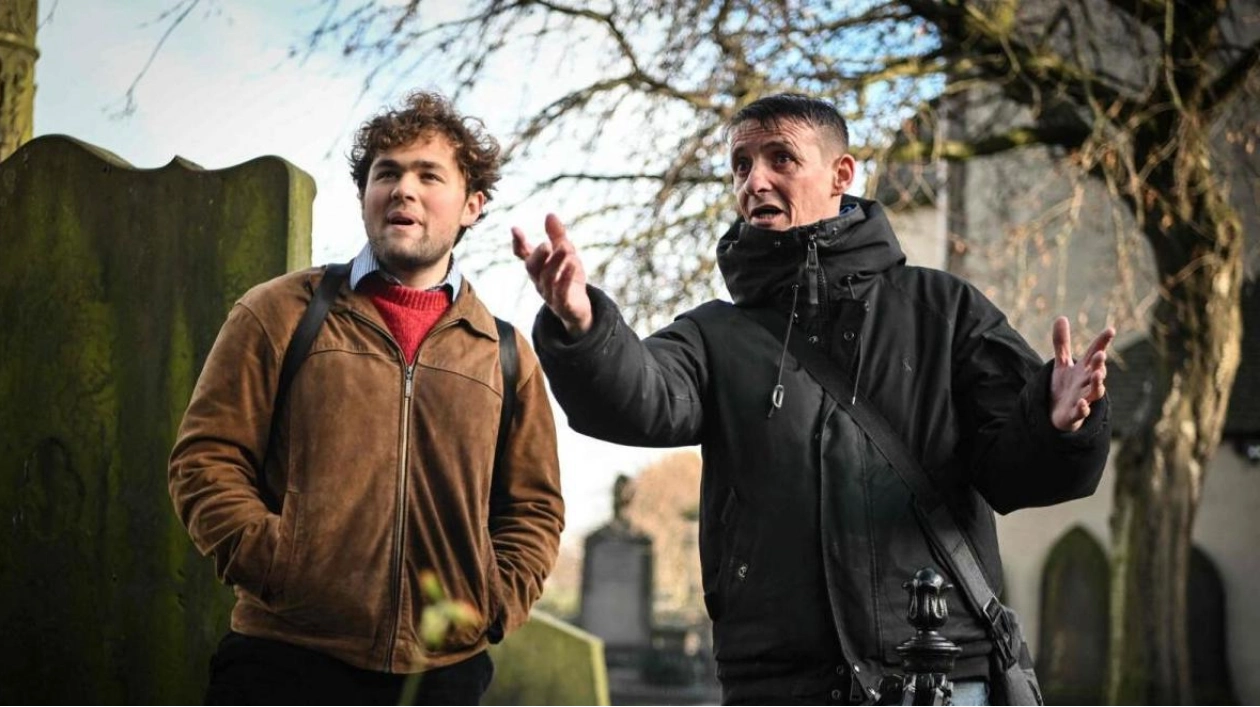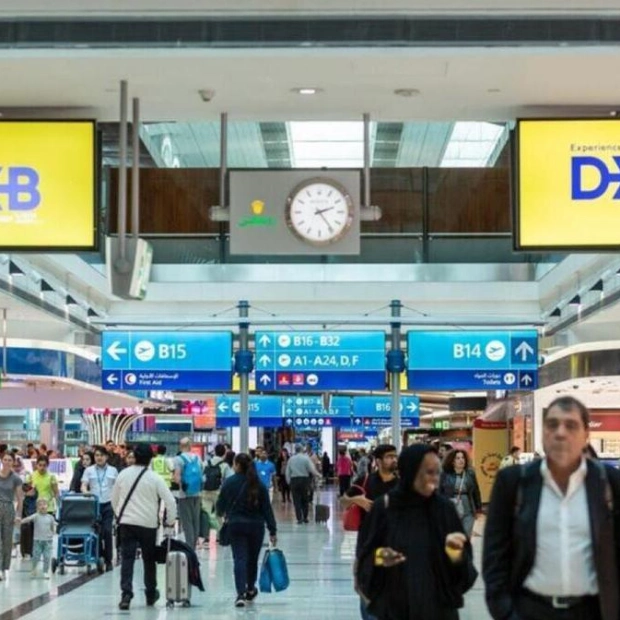Invisible Cities guide Sonny Murray (R) leads a walking tour with student Arthur Lyhne-Gold, in Cannongate Kirk, Edinburgh, on November 17, 2024. Edinburgh, known for its iconic castle and Harry Potter-inspired locales, offers more than meets the eye. The Invisible Cities association is unveiling the Scottish city from a fresh perspective, thanks to former homeless individuals who have transitioned into tour guides. Sonny Murray is one of the association's 18 guides, each offering unique tours tailored for both locals and tourists. Murray's crime-focused tour commences at the site of an old gallows.
Edinburgh, one of Europe's most frequented cities, is now providing tourists with the opportunity to view it through the eyes of those who have experienced homelessness firsthand. 'When you're homeless, people don't look at you. They look through you,' explained Zakia Moulaoui Guery, the founder of Invisible Cities, in an interview with AFP. Sonny Murray, 45, deeply understands this sentiment. After a tumultuous period marked by drug addiction and repeated incarcerations, Murray found a new path with Invisible Cities.
'It was brutal, to be honest. Because I was addicted to drugs and stuff,' he recounted. 'I was shoplifting ... when I wasn't in prison, I was coming back out and I was homeless on the streets, just like a revolving door.' Now, as the lead tour guide for Invisible Cities, Murray trains others, aiding them in transforming their lives as he did. Each tour is distinct and personally crafted by the guide themselves.
Murray's tour, which begins at the site of a former gallows, delves into themes of crime and punishment. One of the tour's highlights is the Edinburgh Support Hub, operated by Scotland's foremost homeless charity, The Simon Community. 'It was literally the only place in Edinburgh where homeless people could come and have a shower or wash their clothes and stuff,' Murray said. 'It's a horrible feeling going about and not being able to have a shower and wash your clothes after a couple of days. So I used to come here all the time.'
Homelessness in Scotland is on the rise, with an eight percent increase this year in individuals assessed as homeless, in temporary accommodation, or having made homelessness applications. Moulaoui Guery expressed hope that Invisible Cities' efforts are helping to address the invisibility experienced by homeless individuals. 'To empower people to be visible and the centre of attention and lead a tour, I think that's really, really important,' she said. Currently, 18 guides are assisting visitors in discovering facets of the city they might not otherwise encounter.
Similar tours are also conducted in several other UK cities, including Glasgow, Manchester, Cardiff, and Liverpool. Moulaoui Guery, who established the initiative in 2016, believes it is beneficial for tourists to gain insight into the city's less glamorous aspects. 'You can talk about the castle and Victoria Street and Harry Potter and all the different things that make it magical, but you can also talk about real topics,' she noted. With a shortage of support networks and relationship breakdowns being primary causes of homelessness, Invisible Cities aims to 'recreate community and a positive environment.'
'It's about training more people and having the current guides move on so we can create more opportunities for others to become guides,' she added. Approximately 130 individuals have completed the training, which serves as a stepping stone to other training or employment opportunities. Murray emphasized that the benefits are mutual. Tourists gain a more comprehensive understanding of the city they are visiting, and they also contribute to helping the city's homeless population.
Source link: https://www.khaleejtimes.com






